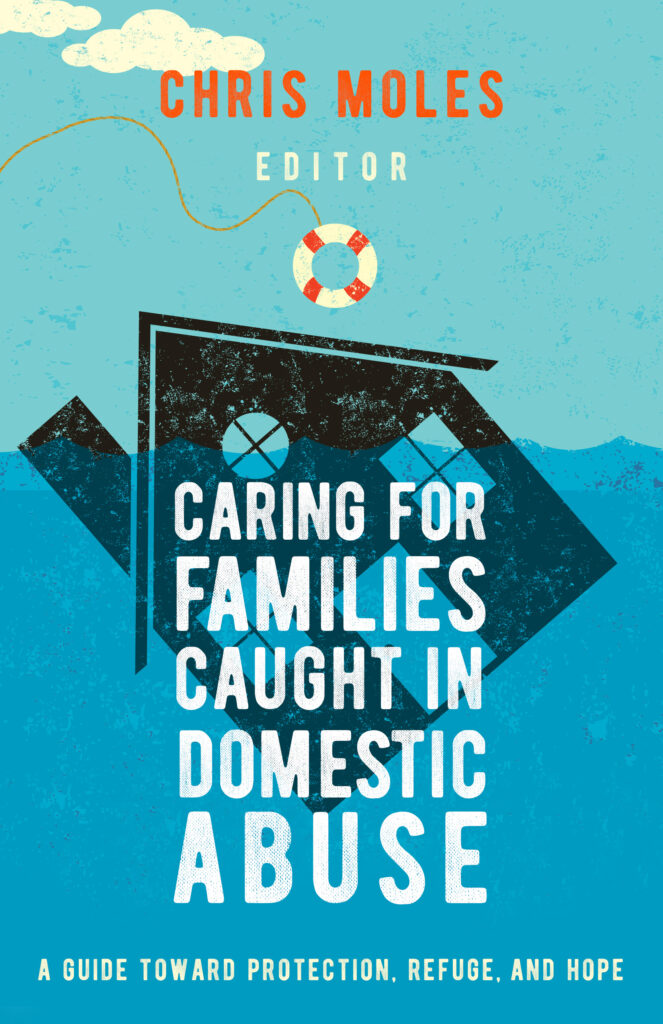Domestic abuse (DA) is likely the most complex and difficult problem most counselors will ever face. Perhaps one reason for this is that these issues can be extremely counterintuitive. Abusive people are often charming, confident, and convincing, while their victims can present as unstable, angry, and confused. In over two decades of working with women who have experienced DA, I have found that very few of them come to counseling with an understanding that what they are experiencing is actually abuse. More often, they show up for counseling to get help for their marriages—they want help with improving communication, becoming better wives, or ways to help their husbands express their anger in healthier ways. Abuse is rarely mentioned.
If those experiencing abuse have difficulty identifying it, it can be even more perplexing to counselors who get only small glimpses of the problem through interviews with guarded counselees. Victims of abuse often fail to disclose the abuse for fear of how their husbands may react, especially in marriage counseling sessions where their abusers are present. It is generally wise to separate couples and move to individual counseling any time abuse is suspected. To counsel victims of domestic abuse, the counselor must consider some of the characteristics of domestic abuse survivors and carefully provide what they most need.
What Domestic Abuse Survivors Most Need from You
How can a counselor best aid an abuse survivor? Let’s look at several specific things you can do to make this time easier for her.
Domestic abuse survivors need you to keep their disclosure of abuse confidential until they are ready to confront their husbands’ sin.
If a woman discloses abuse to you and you automatically confront her abuser, you will undoubtedly put her at risk of greater harm. Safety must be paramount in these situations, so consulting with a domestic violence expert to make a safety plan with the abused woman is crucial. Wise counselors will also avoid sharing her report with others without the wife’s permission. Many women have reported that when their pastors/counselors shared their predicament with the church staff, news spread quickly within the church and put them at risk. Every effort must be made to safeguard this information until a safety plan has been made and until she feels ready. This could take months—or even years.
Domestic abuse survivors should determine the pace for potential reconciliation.
Many women are condemned for their unwillingness to go back to someone who has never truly repented or proven to be trustworthy. Many times these women separate and reconcile multiple times, only to find the abuse worsens after each reconciliation. Often their husbands appear repentant, but after reuniting, it becomes obvious there was no genuine change. Wise counselors must recognize the propensity of abusers to feign genuine repentance and respect the woman’s hesitation to reconcile based on promising words and a few months of changed behavior. In our work with victims, we allow the wife to make the call on whether or not her husband is truly repentant and whether or not to move forward with reconciliation. The well-being of the victim and her children should be the primary goal of counseling, rather than saving the marriage.
Domestic abuse survivors need your help to obtain safety.
Even if a harsh, abusive husband has never inflicted physical harm on his wife, she will still endure the severe impacts of trauma, both physically and emotionally. In addition, we know that domestic abuse is typically progressive over time, and without effective intervention, it will most likely worsen. Situations of extreme control may not turn to physical violence until decades later, but they can even end in attempted murder. If the abuse becomes so unbearable that the victim decides to leave, she may find she is in even more danger than if she stayed. Up to 75 percent of all domestic violence homicides happen after the victim leaves. Helpers will need to assist victims by providing for their safety. A well-trained domestic violence advocate can help with safety planning. It is crucial that helpers do not give advice that endangers your counselee. If those who come alongside are unfamiliar with or lack expertise with this issue, it is imperative that they reach out to those with specific training and experience in domestic abuse.
Domestic abuse survivors need to know that they are not responsible for the abuse!
Domestic abuse is always the choice of the abuser, and there’s no excuse for it. Victims of abuse may very well seem angry and reactive. This is partially a result of post-traumatic stress and partially from an innate, God-given sense of justice. Abuse is oppression. It is not the result of typical marital conflict in which two parties spur each other on and one spouse loses control. Angry wives are often seen as the problem in the marriage, even when their anger is a reaction to extreme injustice. A few years ago, a pastor told me a story of an abusive situation in which he knew the husband was guilty, “but then he got saved and the wife became the abusive one.” In reality, the husband learned to put on a better show and gained the church’s support. The wife was so frustrated that her demeanor showed inappropriate, overt anger so she was counseled to forgive and forget.
As I sat with this woman trying to determine patterns, I found that her husband was extremely abusive to the children—a situation that would anger most of us. Counselors must recognize that even if a wife is responding sinfully to oppression, the injustice is still the crux of the problem. Wise counsel will first acknowledge the injustice she has experienced and God’s hatred of it. After this, she will be more open to receiving instruction on how to respond without sinning.
Note that this counsel will not be to simply forgive and forget. I have seen this sort of counsel many times over the years, and it generally makes the victim responsible for the restoration of the family. It also fails to hold the abuser accountable for his sin. According to 2 Corinthians 7:11, godly sorrow in repentance is evidenced by a zeal to make things right. That burden should be on the abuser, not the victim.
Domestic abuse survivors need you to care more for their souls than for their marriages.
Victims of domestic abuse need counsel that reconnects them to God’s goodness and his heart for the oppressed. They need their understanding of misused Scriptures corrected. They may actually feel like God cares more for their marriages than for their lives. When counselors focus on the marriage, they simply reinforce the lies they already believe about God and themselves.
Setting the Oppressed Free
Understanding these realities about domestic abuse survivors can help you avoid common counseling pitfalls that can inadvertently add to their sense of condemnation. When we fail to respond wisely to this sort of oppression, we can very easily find ourselves reinforcing the abuse, instead of drawing them (and their children) to the lavish love and grace of our Savior.
If you find yourself counseling a victim of domestic abuse, it is important to avoid treating it as a typical case of marital conflict. Instead, seek to reflect God’s heart for the oppressed. This involves listening intently to her story and acknowledging the severe injustices she has experienced. You must recognize the devastating impact it has had on her and her children. How has the abuse affected her view of God? She may genuinely love him and desire to please him, but deep inside, she questions his goodness. Does her interpretation of Scripture keep her in bondage? How does she view herself? Is she constantly apologizing? Filled with self-doubt and condemnation?
Answers to these questions may not be readily apparent and often take time to determine.
An abused wife has been blamed and condemned for as long as she can remember. Wise counsel will counter what her abuser told her, rather than reinforce it. It assures her that God does not condemn her (Romans 8:1), that he hates what happened to her, and that it actually angers him (Psalm 11:5; Isaiah 58:6–10; Amos 5:21–24). Initial counseling goals should be to provide for safety and stability, then to work to gently restore her relationship with God and help her understand her God-given identity as his daughter. These are merely beginning steps. I pray that this book will inspire you to become even more equipped to answer God’s call to “loose the chains of injustice and untie the cords of the yoke, to set the oppressed free” (Isaiah 58:6 NIV). Precious lives are hanging in the balance.
Excerpted from Caring for Families Caught in Domestic Abuse: A Guide toward Protection, Refuge, and Hope © 2023 by Chris Moles. Used with permission of New Growth Press. May not be reproduced without prior written permission.
Caring for Families Caught in Domestic Abuse
Caring for Families Caught in Domestic Abuse is a comprehensive, Christ-centered response to the spiritual, emotional, and physical harm that domestic abuse causes to the abused spouse, the abusive spouse, and their children. Written by an experienced team of biblical counselors, Caring for Families Caught in Domestic Abuse editor Chris Moles and contributors Darby Strickland, Joy Forrest, Greg Wilson, Kirsten Christianson, and Beth Broom are all leaders in biblical domestic abuse ministry in the local church.






